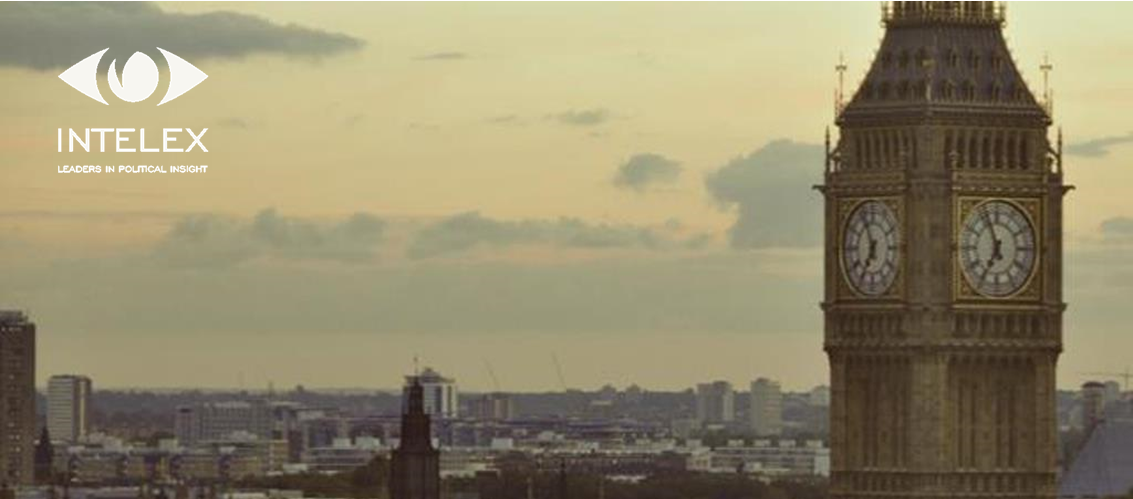The Intelex team look back at highlights from the weekend, and what’s coming up this week:
The story this weekend: Solving a problem like Maria Miller and her expenses continued to dominate the political debate over the weekend. There was a steady flow of criticism directed at the Culture Secretary over her very brief apology for her miscalculated expenses, which has been widely deemed unsatisfactory, as well as reports that she attempted to limit the investigations of Kathryn Hudson, Parliamentary Commissioner for Standards. The calls for her to resign or for the Prime Minister to sack her have not died down, and are unlikely to be eased by suggestions in today’s Telegraph that Miller ‘flipped’ her Wimbledon home, the property on which the scandal already hinges, because she knew she would face capital gains tax on it when she sold it if it was her second home. The report states that the home was sold in February for a profit of more than £1m. Senior Tories including Grant Shapps and Iain Duncan Smith have rallied round Miller, with the latter telling the Andrew Marr show it was becoming a ‘witch hunt’ and suggesting some of the hostility to Miller came from her support for gay marriage and press regulation. Backbench Tory MPs and former Ministers have shown less loyalty, with Lord Tebbit blogging for the Telegraph that ‘the best way out of this is for Mrs Miller to resign’, the former Minister David Mellor suggesting Miller wouldn’t be missed if she was sacked, and the former Trade Minister Lord Digby Jones pointing out that her actions would have been a sackable offence in a business role. The public is firmly in favour of her being sacked, with a Mail on Sunday poll showing 78% think she should be removed, while the Head of IPSA Sir Ian Kennedy told the Sunday Times that responsibility for MPs conduct to be taken out of their hands, because there should not be a situation whereby MPs are ‘marking their own homework’. Adding to Cameron’s worries will be the fact that many are arguing that UKIP stand to gain from the scandal, with the Telegraph commenting in a Leader that Nigel Farage ‘must be praying that Mrs Miller remains in her present job for as long as is humanly possible’.
This week: Aside from the fortunes of the embattled Culture Secretary, the impact the coalition’s welfare reforms are likely to be a big story this week. The Work and Pensions Secretary, Iain Duncan Smith, will be speaking to the Business for Britain campaign group later today, following an interview on Marr yesterday. Matt Ridley has an interesting perspective in today’s Times, with an account of the impact the nudge-esque “claimant commitments” are having in encouraging claimants to seek work. Ridley also points out that the UK’s employment rate is highly encouraging and concludes, ‘There does seem to be something peculiarly job-ful about our current recovery and maybe it does reflect the welfare reforms.’
The interview: Caroline Flint MP appeared on the Sunday Politics Show, and argued that Labour would not pursue a 35% strategy for the 2015 General Election, stating that Labour were ‘in it to win it’ and would not limit themselves to 35% of the vote. She said they wanted a comprehensive majority to win in order to govern the country under a Labour government, and also dismissed concerns that there were internal divisions over Labour’s manifesto strategy. However, in the event that Labour does not win an outright majority, Political Betting has suggested that the Conservatives could come out with the most votes in 2015, but Labour could have the most seats. This would leave the Liberal Democrats in an interesting position regarding who to support in a coalition. A coalition with the Conservative party looks in some ways more appealing, the Liberal Democrats have already gained compromises and concession from them, and ideologically the Conservatives would be in a stronger position with more votes and more public support. But with the Liberal Democrats notoriously able to overthrow ideals, perhaps they would plump for the easier option and just take the party with the most seats. Either way it’s a situation that would leave them with a more interesting decision than in 2010, and arguably leaves them more power, as while in 2010 the Conservatives had more votes and more seats so were the obvious coalition choice, this scenario would potentially leave both Labour and the Conservatives arguing that they’re the bigger party and fighting for Lib Dem support.
